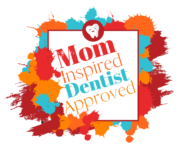Did you know that good oral health in children starts in the womb?
According to the Centers for Disease Control and Prevention, oral habits have a considerable impact on prenatal oral health.
Issues such as cavities and tooth decay can occur just as frequently in newborn babies. For this reason, moms will have to understand the importance of making good oral health a part of good prenatal health.
It all starts with knowing the risks to oral health during pregnancy.
Gingivitis
If you’re feeling like your gums are swelling, you may need to check with your dentist to see if you have gingivitis.
Untreated gingivitis can lead to more serious gum diseases and are usually a common occurrence in 60 to 75% of pregnant women, according to the CDC. That’s because your response to plaque bacteria increases as progesterone (the hormone that prevents contraction) production increases.
The following symptoms may also indicate serious case of this disease:
- Tenderness in the gums
- Shiny gums
- Bleeding gums
To prevent gingivitis, make it a habit to floss at least once a day. You will also need to use toothpaste and mouthwash with an anti-gingivitis formula.
Periodontitis
Another serious gum disease that can occur during pregnancy is periodontitis.
Also known as periodontal disease, periodontitis can be a severe form of untreated gingivitis. It causes serious plaque buildup which can lead to infection. Over time, the infection becomes more severe and there is a greater risk of losing teeth.
Pregnant women and those who plan on having children should get periodontal treatment immediately. In most cases, non-surgical periodontal therapy is prescribed for women who have specific care needs.
Tooth erosion
Morning sickness can cause tooth erosion, a condition in which the hard enamel on the surface of teeth erodes as it interacts with acids.
Since frequent vomiting occurs during the first trimester, tooth erosion becomes more likely. Vomit contains stomach acids that can cause the enamel coating to erode.
So, if you are in the first few months of pregnancy, consider using fluoride toothpaste to nourish the enamel. In case of serious tooth erosion, a dentist may recommend a procedure known as tooth bonding to repair gaps and provide extra protection to affected teeth.
Pregnancy tumors
Pregnancy tumors may form on the gums of your teeth during pregnancy. These appear as painful overgrowths of tissue that cause excessive bleeding.
They are typically caused by a buildup of plaque. While most tend to go away after giving birth, pregnancy tumors may cause discomfort while eating. In that case, you can always have a dentist remove the tumor.
Why should you visit a dentist during pregnancy?
Your body changes during pregnancy, and your oral health adapts to these changes accordingly. It matters to know that you are vulnerable to serious tooth and gum disease which can be passed on to your baby. Fortunately, the American Academy of Pediatrics has a collection of resources aimed to educate moms about prenatal oral health.
For improving and maintaining good oral health in your toddler, you need to find a pediatric dental clinic that delivers child-friendly services. This is where Children’s Choice Pediatric Dentistry and Orthodontics comes in. If you want your child to grow with a healthy set of chompers, call us today!

